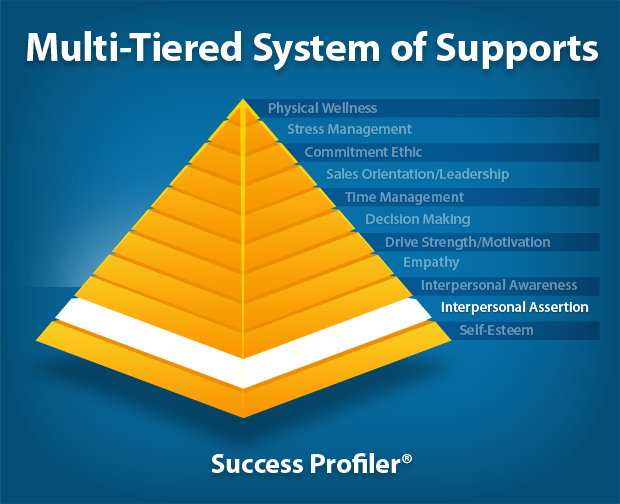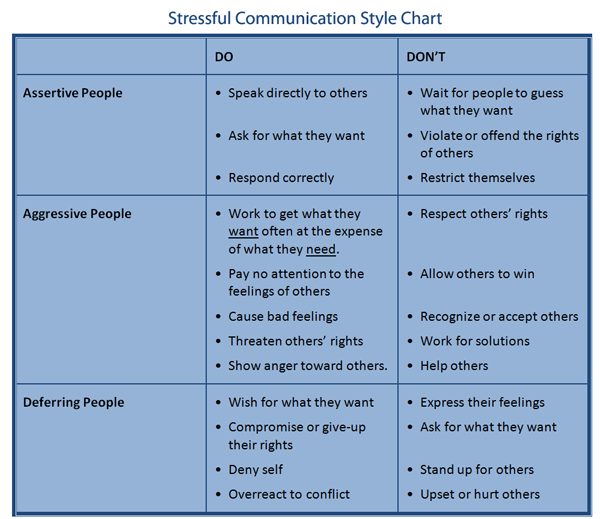
Interpersonal Assertion is the second building block for social/emotional development as measured by the Personal Skills Map. The Personal Skills Map is a core assessment in our Social/Emotional Learning Program, and clearly the grandfather of all social/emotional learning assessments with over 120 research papers written on its effectiveness and over 8.5 million administrations. Interpersonal Assertion is the ability to insist on one’s rights in a good way. When under pressure, assertive people can make things happen. Assertion is a way of getting the thing you want without violating or offending the rights of others. A lack of assertion results in negative behaviors that cause people to hurt themselves or others. A lack of assertion is one of the principle causes of bad behavior in students and is a key characteristic to consider when using a problem solving approach in MTSS.
Multi-Tiered System of Supports or MTSS is a term used to describe an evidence-based model of schooling that uses data-based problem solving to integrate academic and behavioral instruction and intervention (Florida’s MTSS Project).
Communication Styles Under Stress
Something strange happens to all of us when we are under stress. Stress can either bring out the best or the worst in us. Why do some people act in a positive way while others act in a negative way when dealing with a stressful situation? It is not something in our DNA that makes the difference. Rather it is a learned behavior that makes all the difference. Yes, a learned behavior.
Here are three different ways peoples act under pressure. These are message sending or communication styles brought on by stress:
-
Assertion: (assertive communication style) positive way of getting what you want without stepping on or violating the rights of others.
-
Aggression: (aggressive communication style) violates, offends, or takes way another’s rights, thoughts and feelings
-
Deference: (deferring communication style) to be passive, to yield, to give in to someone else, let them have their way, to give your rights to another
Assertion is a learned behavior. Assertive people can communicate openly and clearly. Assertion is an important skill to learn. Those who don’t learn assertion will bounce from deference (fear) to aggression (anger) in their relationships. Assertion is a positive communication skill while aggression and deference are negative communication skills that occur when we fail to be assertive.
What is Your Communication Style?

Which one of the following three communication styles do you have?
- Assertive
- Aggressive
- Deferring
Want to learn how to properly assess communication styles of your students when under stress ? Want to learn how to teach interpersonal assertion to your students?
